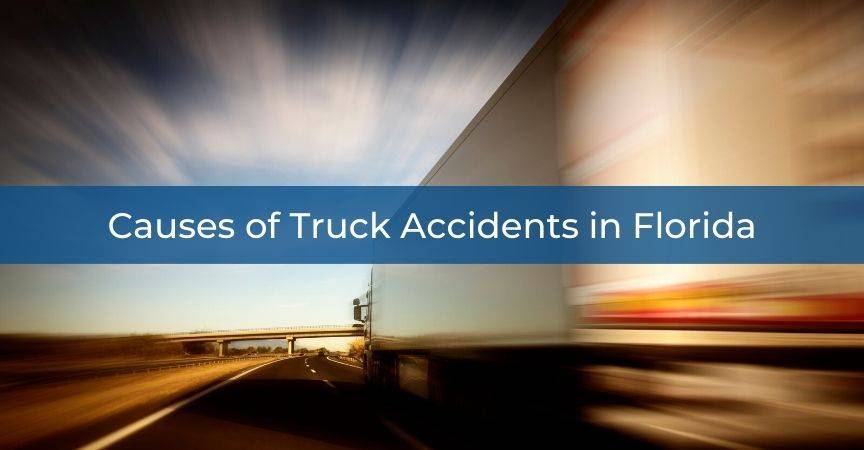Commercial trucking is a 21st-century necessity that allows us to have access to goods from all over the world. With an increased number of people moving to Florida, based on 2021 U.S. Census data, the state’s roads are rapidly becoming packed with drivers and commercial vehicles, especially in metropolitan areas. Interstate 95, along Florida’s eastern coast, reports over 300,000 drivers daily, which contributes to the ever-rising number of trucking accidents.
The volume of population and traffic on Florida roads is only one contributor to the causes of truck accidents in the state. According to the National Highway Traffic Safety 2020 statistics, there were over 27,000 accidents involving trucks across the state that year, resulting in 29 fatalities and 789 injuries.
Trucks are generally 20-30 times the size of a standard passenger vehicle, making any sort of collision extremely dangerous. With truck accidents on the rise, it is important for everyday drivers to be aware of the common causes of truck accidents in Florida:
-
Speeding
The faster a loaded tractor-trailer is moving, the more space it needs to slow down or stop. The Federal Motor Carrier Safety Administration considers long stopping distances to be one of the most challenging aspects of operating a large vehicle. The FMCSA reports that a truck traveling at a standard highway speed needs about 200 yards to stop.
-
Inadequate Training
Operating such a large vehicle requires specific expertise and understanding of potential roadway hazards. It is the responsibility of a trucking company to hire and train appropriately licensed and experienced drivers to represent their company. Fault in a truck accident can potentially fall on the trucking company if the evidence demonstrates a lack of training or proper licensure.
-
Truck Maintenance
Due to their size and the number of miles they cover, commercial trucks need regular maintenance to minimize mechanical failures or issues. For example, the braking system on a large truck is very sensitive and requires a specific air pressure based on the truck’s load in order to function properly. It is the driver’s responsibility to ensure all mechanical features of the truck are maintained to code.
-
Drowsy Driving
Truck drivers spend their entire day in their truck driving. Long hours spent behind the wheel potentially lead to exhaustion which significantly slows a person’s reflexes. The FMCSA requires truck drivers to take mandatory breaks. Florida truck drivers must take a 30-minute consecutive break for every eight hours of cumulative drive time. Drivers who break this law are liable for negligence.
-
Driving Under the Influence
While standard vehicle operators have a BAC limit of 0.8% in Florida, truck drivers must remain below 0.4% and can still be issued fines if a test shows any sign of blood alcohol concentration. Studies show that driving under the influence creates a slowed reaction time, limits short-term memory functions, decreases hand-eye coordination, weakens concentration, and creates difficulty perceiving time and distance.
Award-winning truck accident attorney Ted Babbitt has decades of experience fighting for his client’s rights following a devastating injury or death. He took on a Fortune 10 company on behalf of client Josh Perry after Perry’s Florida car accident where he became wedged beneath the rear end of a nearly stationary tractor-trailer. The impact left him pinned and trapped in his vehicle and dragged further down the road sustaining life-altering injuries. The case was ultimately, and successfully, settled.
Ted has always been committed to giving his clients the attention – and the resources – they deserve. For Ted, “no detail is too small, and no opponent is too big”. Ted Babbitt is dedicated to helping his clients seek redress, and accountability, for the harm they’ve suffered.
If you or a family member has been injured in a truck accident in Florida, do not hesitate to contact Ted by filling out this online form or calling (561) 375-2841 to learn more about how his team can help you through the next stages of your case.
